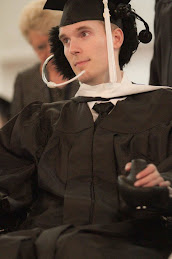
I think ethical issues matter because we as humans are rational beings, and figuring out ethics* gives a sense of purpose to our lives. As Descartes said, "I think therefore I am," and our ability to reason perhaps helps justify our existence. I believe voicing our opinion matters, because it will help refine our views, in the same way that gold is melted to remove the impurities. We can voice our opinions in order arrive closer at a proper standard of life/ a good life. I am a Christian, and this gives me the opportunity to know that a proper standard of life/a good life does exist, and it exists beyond legal, aesthetic, and cultural conventions. So that when the hair on the back your neck stands because you heard about a three-year-old girl being raped and murdered, you can recognize that this is inherently wrong against the very nature of our humanity, and it is not just something our culture has proscribed as wrong.
It also seems that it is not only correct to believe ethical issues matter, yet also we ought to have a stance on them, and share them with others. For as Socrates said, "the unexamined life is not worth living," so we can examine ethical issues in a pursuit of a standard for the good life. Since we need to examine our lives, and yet to merely examine our own lives, is to fall short of recognizing that we do not know everything, and that others views could prove to be vital in that refining process of our knowledge. This is why I believe we should share our views with others.
To hold view that we cannot say what others do is 'right' or 'wrong' is inconsistent, because if someone breaks into your house intending to harm you and your family; you will take action to prevent that harm, and it is because you believe the intruder's actions are wrong. If you did not believe the intruder's actions to be wrong, then you would have no authority to stop him. And to remove the idea of authority, would destroy any notion of a civilized life.
"Umm... excuse me Mr. intruder, you can't be here in my house in the middle of the night." "Why not, there is nothing 'wrong' with me being here in your house right now." "Well Mr. intruder, I can't tell you what to do, but I hope you decide it is wrong, and then you leave."
My fellow blog enthusiasts, please assure me you won't ever do this?
Is it possible to go through life never confronting a situation where you had to say whether another person's actions are right or wrong, such as in the situation of the intruder? It seems like to do so would require a life of total isolation from any human contact. Or, it would take a life so timidly misguided that it would think their opinions could be of no benefit to others. Or, it would take a life so prideful that it would think their opinions were too superior for others.
* Ethics is the process of asking basic questions about the good life, about whether there is right and wrong, and, if so, how we can know what it is (MacKinnon, 2009).
(Image is of Rodin's sculpture "The Thinker.")




